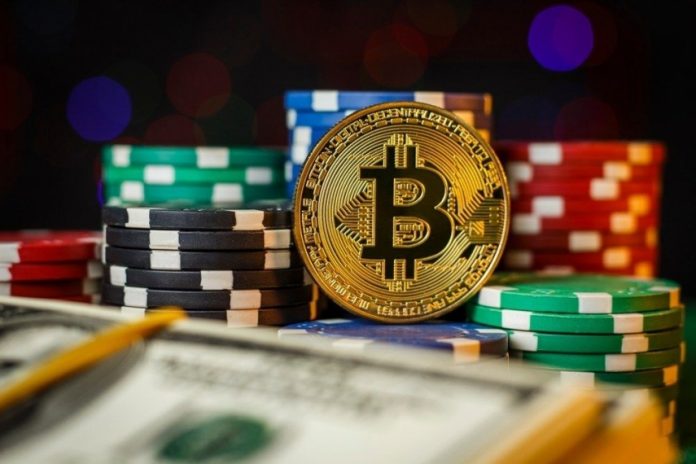Many predict that blockchain technology will have a dramatic impact on the iGaming industry in the years to come. However, in order to understand how online casinos may evolve through this new technology, we need to, at least, understand it at a basic level.
What is Blockchain?
In a nutshell, a blockchain is a list of records linked together by way of cryptography. The records are known as ‘blocks’ (hence the name blockchain). Each block contains information related to the previous one – forming a chain of information. Most blockchains operate via a peer-to-peer network.
Typically, a blockchain is managed by a peer-to-peer network that essentially creates a distributed ledger with nodes following set parameters to communicate and validate information (blocks). The cryptocurrency Bitcoin, which was invented in 2008, was the world’s first blockchain.
Blockchain and Gambling
Online casinos started popping up in the mid to late 90s. Most of the early sites ran on Microgaming’s software, which players downloaded to their computers. Fast forward 20+ years and the industry has grown in leaps and bounds. Smartphones and tablets are now the preferred devices, with many offering hundreds of games, live dealers, and many other appealing features.
However, where will the industry be in another 20 years? Already, we are seeing an increased number of gambling-related decentralised apps (dApps). These dApps operate on blockchain networks without the need for third-party intermediaries. Everything is coded into the dApps with smart contracts automatically executing specific functions.
Currently, most dApps are on the Ethereum blockchain, but due to its high transaction fees, developers have sought alternatives, such as the Tron casino apps listed on GamblersPro.com.
Advantages of Gambling dApps
-
- Transparency: Due to the immutable nature of blockchains, dApps can prove that each and every slot spin, roulette game, blackjack hand and craps throw is completely fair. All actions, including payouts, wins and losses, are recorded on a public ledger, which is fully transparent. This reduces the risk of fraud and guarantees fair gaming.
-
- Fast and Safe Payments: A gambling dApp uses cryptocurrencies rather than traditional fiat currencies. Typically, gamblers deposit using specific cryptos and they receive payouts in the same form. Users don’t have to share personal bank account or credit card details with the operator. Furthermore, payouts can be instantaneous with wallets that connect to the gambling dApp. For years, payout times have been a frustration for regular online casino players – blockchain has removed this annoyance completely.
-
- Without borders: In some parts of the world, online gambling is illegal, and in other areas, there is heavy regulation. This potentially cuts off thousands of willing players through no fault of their own. As dApps work on decentralized networks, they are able to bypass such restrictions and regulations. While we’re not advocating people to break their country’s laws, it’s interesting to see how blockchain can play a role in forming a borderless world.
- Anonymity: As gambling dApps operate in an unregulated space, it is possible to play these games without creating an account. That means a player doesn’t need to give his name, address or mobile phone number. Your activity has a transaction address associated with it, and that is all.
The Future is Here
Blockchain gambling dApps are already here and they are slowly but surely making their presence felt within the industry. Of course, it will take time, and we foresee compromises having to be made before this revolutionary technology is fully embraced. It’s unlikely countries like the UK, the USA and Australia will open the door without some type of regulation, which isn’t necessarily a bad thing. Clearly, blockchain brings multiple benefits to this sector and far beyond.

















![EC Announces Elimination of Indelible Ink in Upcoming Elections [Video]](https://newsonghana.com/wp-content/uploads/2023/12/image-351-218x150.png)






































